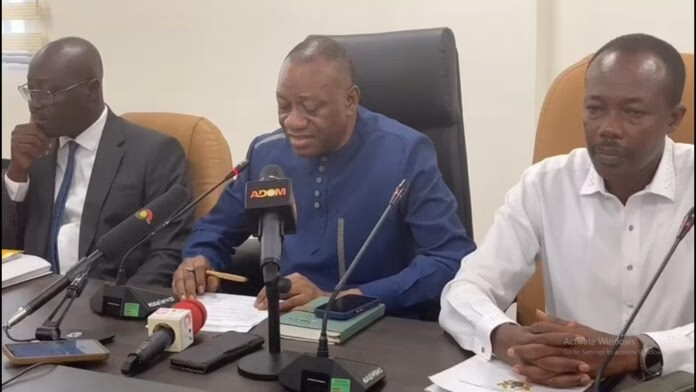Government Approves 10% Wage Hike for Public Sector Employees
In a significant move to address the rising cost of living, the Ghanaian government has approved a 10% wage increase for public sector employees. This decision follows successful negotiations between the Labour Union and President John Dramani Mahama, who personally engaged with union leaders to secure their support. The wage adjustment, which takes effect on March 1, 2025, marks the second pay rise in less than a year, following a 23% increase approved in 2024.
What Led to the Wage Increase?
The wage hike is the result of ongoing negotiations between the government and labor representatives. On February 4, 2025, the National Tripartite Committee (NTC)—comprising government, employer, and labor representatives—began discussions to determine the 2025 minimum wage. These negotiations are critical as they set the baseline for wages across various sectors, particularly impacting low-income workers in both formal and informal economies.
Minister of Labour, Jobs, and Employment, Rashid Pelpuo, emphasized the importance of this adjustment in supporting workers amid economic challenges. For more details on labor policies in Ghana, visit the Ministry of Employment and Labour Relations.
Why is the Minimum Wage Important?
The minimum wage is a vital tool for protecting vulnerable workers, ensuring fair compensation, and addressing inflation and economic growth. For many Ghanaians, it represents their primary means of supporting themselves and their families. However, concerns have been raised about delays in finalizing the minimum wage and base pay discussions, which were expected to be completed by April 2024 under the Public Financial Management (PFM) Act.
These delays could impact the 2025 national budget planning process. To learn more about the PFM Act and its implications, check out the Ministry of Finance.
How Will the Wage Hike Impact Workers?
The 10% wage increase is expected to provide much-needed relief to public sector employees grappling with rising living costs. It also sets the stage for future deliberations on base pay adjustments, which are scheduled to follow the conclusion of the minimum wage negotiations.
This move demonstrates the government’s commitment to improving the welfare of workers. However, timely implementation of such policies is crucial to ensure their effectiveness. For updates on labor-related developments.
What’s Next for Wage Negotiations?
While the 10% wage hike is a step in the right direction, stakeholders must work together to address delays in wage discussions. The NTC’s ongoing negotiations will play a pivotal role in shaping fair compensation standards for 2025 and beyond.
To stay informed about labor rights and wage policies, consider subscribing to updates from the Trades Union Congress (TUC) Ghana.
Advocate for Fair Wages
The approval of this wage increase highlights the importance of collective bargaining and advocacy in achieving fair compensation for workers. If you’re passionate about labor rights, consider supporting organizations like the Trades Union Congress or engaging in discussions about economic policies that impact workers.



